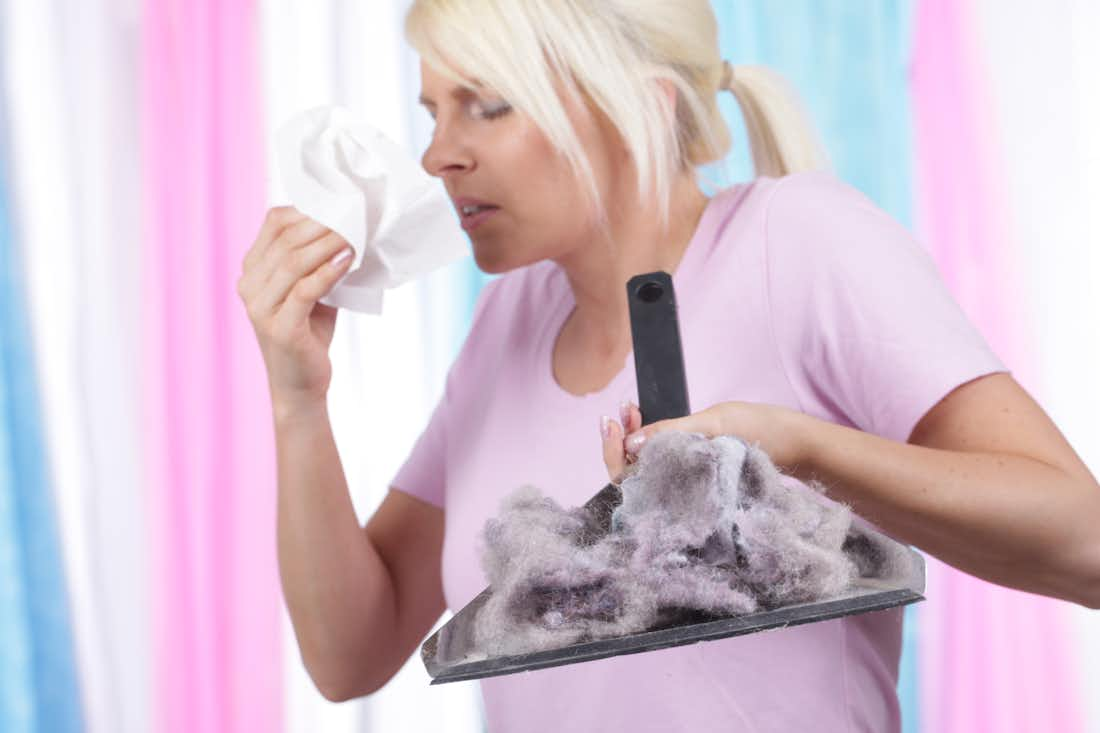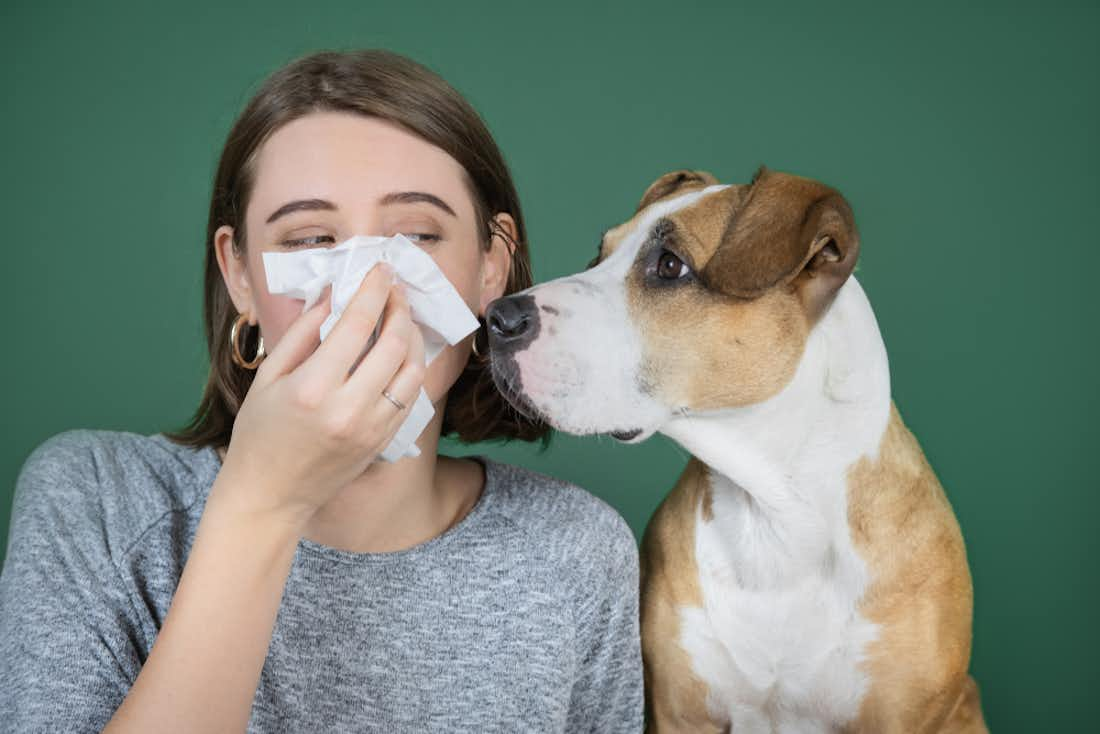Nov 1, 2021
8 Tips and Tricks to Help Allergies
6 minute read
Going for a nice walk or petting a dog are among some of life’s finer moments… for most people. But for others, they are the source of stuffy noses, sneezing, coughing, watery eyes, and more.
Seasonal allergies and hay fever (allergic rhinitis) can be a pain to deal with.
While pollen and pet dander are just two of the many allergen triggers that plague the vulnerable daily, they sure pack a punch. But allergies are no match for our home remedies that can eliminate them fast.
1. Relief Medications
Your first line of defense against pesky allergies is relief medicines or antihistamines. You’ve probably seen these helpful little pills in your drugstore under names like Claritin (loratadine) or Zyrtec (cetirizine).
Your immune system is supposed to help defend your body against enemies like viruses and bacteria. However, sometimes your immune system gets a bit confused and starts to think that harmless things like pollen or ragweed are out to get you. Histamine is a chemical released by our immune system and is released during allergic reactions and can cause symptoms like watery eyes, nasal congestion or sneezing.
As the name implies, antihistamines work to inhibit the production of histamines so that you don’t feel these symptoms as severely. Note that while they don’t fix the underlying causes of allergies, they work wonders for alleviating the symptoms.
You can take antihistamines orally through a pill, but you can also take them as a nasal spray. These are especially helpful if your allergy symptoms are mainly related to clogged nose and sinus issues. Either way, you can find exactly what you’re looking for (for cheap) at the Cleared.
2. Clean Out Your Nose
Your mom may have always taught you to pluck your nose hairs before a hot date, but you may want to think twice about keeping them there. Your nose is one of the most important shields in your body to prevent viral or bacterial particles from entering your immune system.
However, when allergen particles get caught in your nose, your body will try to do whatever it can to get it back out. That’s where your runny nose, sneezing, and congestion comes into play. Cleaning out your nose is one of the most natural remedies there is.
If you’re able to clear out the mucous membrane in your nostrils and sinuses, you might be able to rid yourself of the irritants that bring you pain. This might be something as simple as blowing your nose, but you can also use a neti pot or nasal spray for maximum relief.
Additionally, you can try to prevent nasal irritation in the first place by staying hydrated. Drinking enough water helps keep your nasal passages from getting clogged up with mucous so that you can breathe easier.
3. Wear Glasses
Many people forget that your eyes are technically an orifice in which harmful irritants can enter your body. If you’re able to protect your eyes by wearing glasses, you can help lessen the amount of allergens entering your system.
So even if you were called four eyes in high school, it’s time to overcome the stereotype to remain allergy-free. You can also try wearing sunglasses when you go outside to provide a physical barrier to limit your exposure to airborne allergens.
4. High Heat Can’t Be Beat
One of the biggest causes of indoor allergies is dust mites, tiny little creatures that exist on almost every surface. Primarily, they love to snuggle in your bed sheets and linens.
You can kill dust mites by washing your sheets in water that’s at least 130 degrees Fahrenheit or higher. Then, throw them in the drier for some extra high heat that’s sure to burn the dust mites to a crisp.
This also helps wash off any pet dander or hair that’s an equally inundating trigger for indoor allergy sufferers.
5. Try to Dehumidify
Mold spores are yet another common trigger for indoor allergies specifically, and it loves to grow in dark, damp environments like your bathroom cabinets or under your sink. But you can help control mold growth by using a dehumidifier to suck some moisture out of the air.
It’s a good rule of thumb to try to keep your home humidity close to 50 percent. You can get a hygrometer device to measure it directly, but you can also try to gauge it yourself. Regardless, dehumidifiers can make your home feel much more comfortable, especially during humid summer months.
6. Stop Stressin’
If you’ve ever experienced allergy symptoms, you know how much it can affect your life. Constant sneezing and coughing can make you feel miserable, and it can cause you to feel a lot of stress. Believe it or not, that may be making your allergy symptoms worse.
Stress and allergies have a major connection to one another. Feeling stressed can amplify the emotional reaction to the physical symptoms that you’re having. Also, it’s thought that stress hormones can exaggerate your immune system response to make your sneezes and wheezes worsen.
So take a second to take a deep breath, even if it’s a little mucous-filled. Do some yoga, watch a funny show, and try to relax. You might notice that your allergy symptoms get better without the need for any outside help.
7. Transport Indoor Plants
While some flora and fauna in your humble abode may look gorgeous, it won’t matter if you can’t even see them through your itchy allergy eyes.
Funny enough, indoor plants aren’t usually the root of pollen allergies because they don't really release pollen like outdoor plants.
However, the soil of indoor plants can be filled with tiny mold spores and mildew that are detrimental for people with hay fever or mold allergies.
So limit your indoor plants, or consider going with fake plants if you want to make your home look like a jungle.
8. Consider an Allergy Treatment
Every natural remedy or home remedy on this list will help bring you relief from the allergy symptoms. However, none of them will actually prevent you from developing symptoms in the first place. Aside from the decongestants like Pseudoephedrine, Sudafed, and Allegra that you have probably already tried, Cleared can bring some new options to the table.
A new, scientifically-backed treatment for allergies known as sublingual immunotherapy works a little differently. SLIT, for short, works to actually address the underlying causes of allergies rather than just the symptoms by gradually exposing you to your trigger over time. Eventually, your body starts to build up a tolerance, and your symptoms naturally improve.
This form of allergy immunotherapy is the only FDA-approved way to treat allergies. It’s also much less painful than allergy shots, which are pretty much the only other alternative. With SLIT, you can finally say goodbye to allergies from the comfort of your own home without the need for injections. Click here to learn more about our revolutionary treatment.
Clearing the Air
While allergy symptoms can feel inundating, it’s simple and quick to reduce the feeling with these home remedies. We always recommend trying antihistamines as the first line of defense, but you have other options if those don’t work.
Sometimes, it’s as simple as giving your linens a deep clean or blowing your nose. You can also take preventative measures like wearing glasses or getting rid of some of your indoor plants. Also, consider a dehumidifier or air purifier to clear the air.
Also, you may want to consider some allergy immunotherapy to pinpoint the problem at the source. It’s simple, quick, and can be done right from home. Click here to start your free consultation to start on the path towards an allergy-free life.
Reviewed by Dr. Payel Gupta
Sources:
Is stress making your allergy symptoms worse? | Harvard Health
Looking for allergy relief? Your humidifier or dehumidifier could help! | AHAM.org



